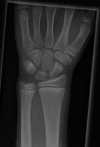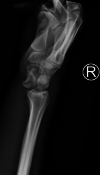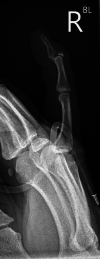Using the Novel Musculoskeletal Emergency Medicine Assessment Tool: A Feasibility Study
- PMID: 38841295
- PMCID: PMC11152358
- DOI: 10.7759/cureus.61740
Using the Novel Musculoskeletal Emergency Medicine Assessment Tool: A Feasibility Study
Abstract
Background and objective While musculoskeletal (MSK) disorders account for a significant number of primary care and emergency department (ED) visits, there are widely recognized shortcomings and gaps in MSK education throughout medical training. Undergraduate medical education (UME) frequently fails to impart clinically relevant MSK knowledge, while many emergency medicine (EM) residency graduates report feeling unprepared to manage MSK complaints. Existing MSK assessments are not tailored to EM and may inaccurately assess specialty-specific MSK knowledge. The novel validated Musculoskeletal Emergency Medicine Assessment Tool (MEAT) holds great promise in standardizing EM MSK knowledge assessment. This trial of feasibility was conducted to assess the viability and practicality of using MEAT to evaluate MSK knowledge among incoming resident physicians in EM programs. Methods This feasibility study involved 21 incoming EM resident physicians from two programs at a single institution. MEAT was administered online during orientation, and demographic data and survey metadata were collected. UME MSK education details were obtained, and MEAT scores were analyzed. Results Participants reported no difficulties in accessing or understanding the 50-question online MEAT, resulting in a 100% response rate. The average pretest score for all interns was 29.9, with a median of 30. Most participants had documented UME MSK education, but curricular content varied widely. The participants took an average of 32 minutes to complete the assessment. Conclusions MEAT demonstrated successful implementation and high response rates, suggesting a high level of feasibility. The tool can be used to assess baseline MSK knowledge and ultimately track progression during residency with the potential for evaluating educational interventions once further validation studies have been performed. Further adoption of MEAT across multiple EM residency programs will help to enhance the tool's generalizability.
Keywords: emergency medicine assessment tool; emergency medicine musculoskeletal assessment; musculoskeletal assessment; musculoskeletal assessment tool; musculoskeletal education; resident assessment; resident education.
Copyright © 2024, Lane et al.
Conflict of interest statement
The authors have declared that no competing interests exist.
Figures








References
LinkOut - more resources
Full Text Sources
